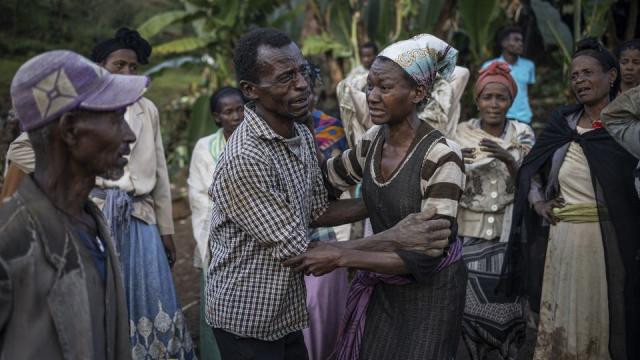
According to a joint report by the United Nations and the African Union released on Monday, Africa is undergoing accelerated warming in comparison to the global average. The continent is also grappling with heightened climate and weather-related catastrophes, such as droughts.
The UN-AU report highlights the potential for climate change to exacerbate conflicts over resources.
Last year, the continent experienced a total of 80 extreme weather and climate-related disasters, as stated in the report issued by the World Meteorological Organization. This report coincided with Africa’s inaugural climate summit in Kenya, where discussions are expected to emphasize financing for climate-related initiatives.
The report revealed that these disasters, including the most severe drought in the Horn of Africa in four decades and extensive wildfires in Algeria, led to approximately 5,000 fatalities and caused economic losses exceeding $8.5 billion. It’s important to note that the actual figures are likely to be higher due to reporting discrepancies, as indicated in the report.
“Africa is responsible for only a fraction of global greenhouse gas emissions but is suffering disproportionately from climate change,” the State of the Climate in Africa 2022 report said.
“Climate change and the diminishing natural resource base could fuel conflicts for scarce productive land, water, and pastures, where farmer-herder violence has increased over the past 10 years due to growing land pressure…,” it added.
Incidents of communal violence over resources are already frequent in certain semi-arid Sahel regions. On average, each African generated 1.04 tonnes of carbon dioxide emissions in 2021, which is less than a quarter of the global average.
According to the report, the average rate of temperature increase in Africa stood at 0.3 degrees Celsius per decade during the period from 1991 to 2022, surpassing the global average of 0.2 degrees.
The most rapid warming has occurred in North Africa, which has experienced numerous heatwaves since the previous year. This has led to a decrease in cereal production, amounting to 33 million tonnes, approximately 10% below the preceding five-year average, as indicated in the report. However, other regions of the continent, like West Africa, saw increased production thanks to favorable rainfall.
In summary, the report highlighted a decrease in agricultural productivity attributed to climate change, marking a 34% decline since 1961. This trend is expected to significantly increase the necessity for imports.




